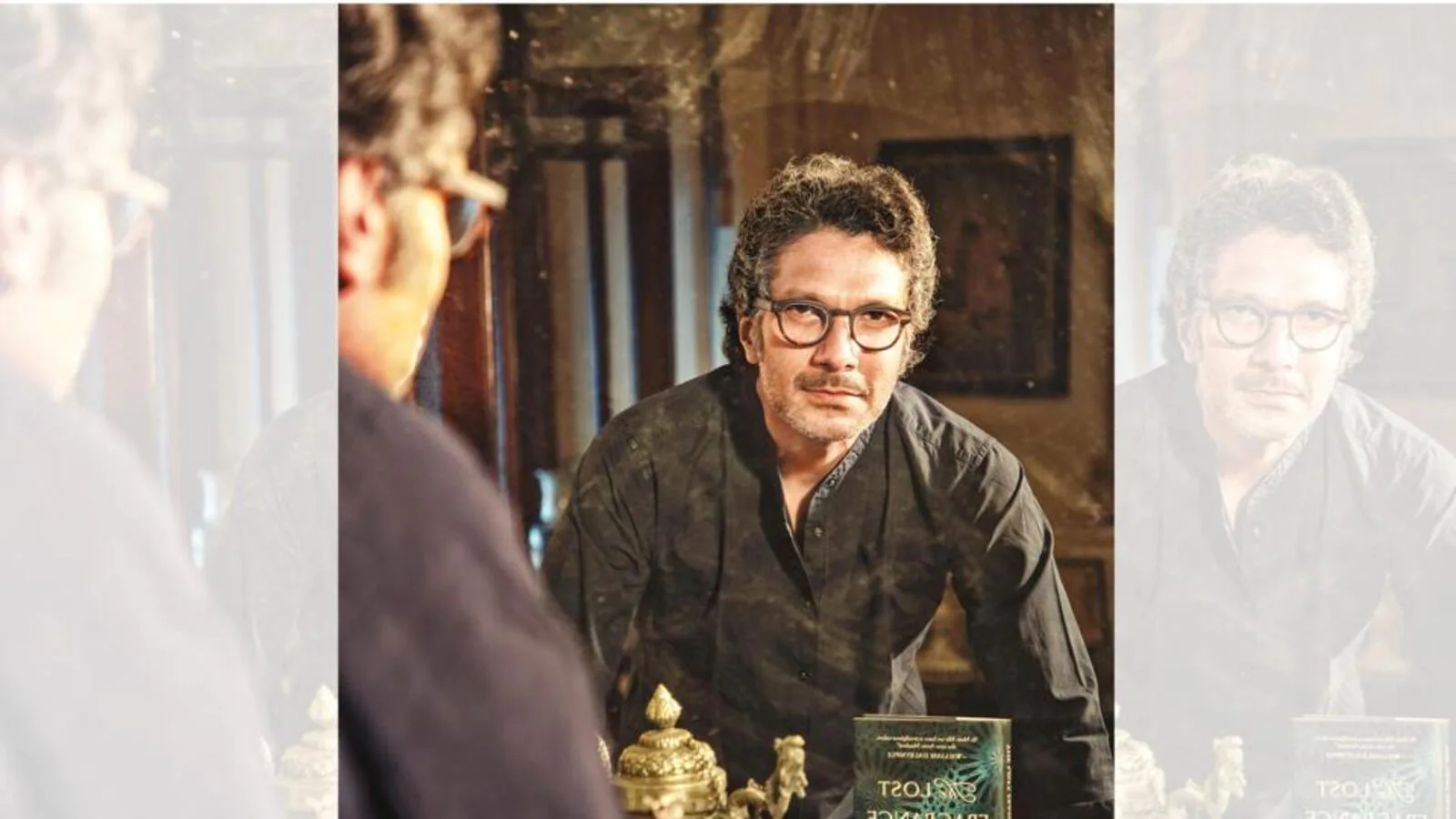[ad_1]
Author Moin Mir’s latest book, The Lost Fragrance of Infinity, is an intensely atmospheric novel which marries history and philosophy. Narrated through the lives of a young craftsman, Qarar Ali, and the girl he is in love with, Abeerah, the book dwells with tragedy, chaos, and Sufism. While he does not philosophise, Moin lets his philosophies take centre stage in this novel.
Sufism is a mystical or a spiritual belief and practice in Islam to seek the divine. So, when Moin is asked how the lines between spiritual and ritual are often blurred, he quotes the Sufi poet Hafiz: ‘Of this fierce glow which love and you within my breast inspire, the sun is but a spark that flew and set the heavens afire’. These are lines with which he begins his latest book, too.
“Hafiz is trying to say that when you have the beauty of love and compassion within your heart, you as a human being will rise to such an extent that even the sun will be just a mere spark in your achievements. So, today when you see where man has gone in terms of science, you would want to go back to this verse and that begins with a spiritual journey and not a ritualistic journey,” says the London-based author.
Philosophies of the heart
Fiction is the most complex genre of literature and this latest work is Moin’s debut fiction, after his previous book, Surat: Fall of a Port, Rise of a Prince became an acclaimed bestseller.
“My inspiration to write The Lost Fragrance of Infinity came because I believe there’s no other time of greater importance than now for the voice of the Sufi to be heard,” he says.
Grounded on historical events from the 17th century, Moin’s research shines through his work. “Reading Greek philosophy for the past six years was the foundation for the research that happened for this book,” he adds.
Like a lot of us who have been largely guided by the elders in our family, Moin was mentored by his grandfather. “My grandfather was a practising Sufi and would often give talks about how it relates to the Greek philosophy propagated by Aristotle and Plato. It would go over my head then,” he laughs. “But I was amazed by how my grandfather would give these talks and then take the same interest in my tennis lessons.”
When asked if he is a practising Sufi, Moin gently nods his head to signal ‘no’.
“I’m deeply influenced by Sufism, but I’m not a practising Sufi. It’s a very disciplined way of life. However, I believe in the beauty of the philosophies of Sufism and the contributions it has made to the world through compassion and love, to science, mathematics and spirituality. When today, the world is falling apart with climate change, it is the voice of the Sufi that will connect us,” believes Moin.
Love knows no genre
In his initial research, having read the works of Ibn Arabi, Hafiz and Rumi, particularly about the social sciences and metaphysics, it seemed to the author that this was the perfect setting for another non-fiction book.
“But, when I came to the final pillar of Sufism which is ishq, and after re-reading the works of these Sufi scholars, it brought me to a point which made me realise that I could not write about love in a dry and boring way. All these scholars heightened as philosophers when they experienced ishq and I wanted to convey that,” he says.
So, does that mean Moin wants to explore fiction further? Apparently not! The author is working on his next book and he says he’s going back to his favourite genre of non-fiction.
His stories are enriched by research, which is an extremely important factor when writing about a time that neither he nor his readers have experienced. So, what was the motive behind writing Surat: Fall of a Port, Rise of a Prince, when the belongingness of time and place seemed to be lost.
“For me, writing about a particular part of history is to refresh people’s minds, especially if it has been something that has been relatively forgotten. As a writer, it was about bringing to life this incredible real story and it was because I believe we can learn so much about the socio-political aspect of life from then,” says Moin.
Though he does not mention it, the story is also personal to him as he is a descendent of the Nawab of Surat. “Writing the story was not about my ties, but purely an account that needed to be told and read. Being a descendent of the nawab doesn’t really add or delete anything for me today,” he says.
One of the biggest strengths of Moin’s work is his characterisation. The author gives all his characters, big or small, a life and a story to tell.
“In The Lost Fragrance of Infinity, it was vital, because when a book is based on philosophy, you have to imbue those characters with a sense of inclination towards the philosophical outlook towards life and feed that into the main plot. As a reader, I want it to still be an unexpected element as they progress through the story,” he says.
Intertwining plots, philosophy and history is no mean feat but it comes naturally to Moin, who belongs to a family of writers.
“Writing was the only thing I knew. My father was a writer and so was my grandfather. I came to London to study communications in 1996 and writing was a big part of it, so that kind of helped. It was time that I shifted from writing proposals to writing novels,” he smiles.
From HT Brunch, March 6, 2022
Follow us on twitter.com/HTBrunch
Connect with us on facebook.com/hindustantimesbrunch
[ad_2]
Source link

